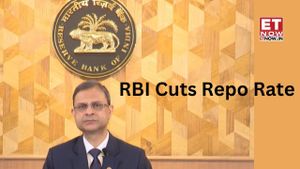The New Delhi Assembly elections held on February 5, 2025, showcased a fierce political battle, with the state's political future hanging in the balance. Candidates representing three major parties—the Aam Aadmi Party (AAP), the Bharatiya Janata Party (BJP), and the Indian National Congress (INC)—contested for the important seat.
Leading the charge was Arvind Kejriwal of AAP, the incumbent Chief Minister who has held the seat since his stunning 2013 victory over Sheila Dikshit. This time, he was challenged by Parvesh Verma of the BJP, son of former Chief Minister Sahib Singh Verma, and Sandeep Dikshit, son of the late Sheila Dikshit and a two-time Lok Sabha member representing Congress.
Historically, this constituency has had significant political ramifications, often serving as springboard for those who ascend to the Chief Minister position. Kejriwal's experience as the AAP leader propelled him to victories over the years, including major margins against BJP contenders. With the stakes high, this election was deemed especially pivotal for the BJP, whose track record suggests it has not captured the New Delhi seat since 1977.
Voter turnout for this election was reported at 56.41%, compared to the previous electoral turnout of 61.46% recorded during the last assembly elections. The significance of the results is underscored by the fact they could thwart AAP’s aspiration for a fourth consecutive term or signal the BJP’s re-entry following years of opposition.
Even before the counting process began on the morning of February 6, various parties made predictions based on exit polls. Most projected the BJP as edging out the AAP, with forecasts placing the BJP to secure 38-43 seats across Delhi, contrasting with the AAP's predicted haul of 26-32 seats. With Congress lagging behind, possibly winning no more than one seat, the dynamics of Delhi's political scene appeared precarious.
The contest was rife with allegations, particularly from Kejriwal, who asserted the BJP attempted to lure his candidates away. He claimed, "EC has refused to upload form 17C and the number of votes polled per booth, highlighting suspected irregularities. This claim pointed to intense scrutiny over the electoral process and heightened tensions between the parties.
On the other hand, Verma dismissed these allegations, stating, "People are fed with lies and failures of AAP..." His remarks painted the BJP as contenders ready to capitalize on dissatisfaction with the current government. Similarly, Congress candidate Sandeep Dikshit, attempted to distance himself from earlier AAP-Congress ties and focused on reviving the Congress stature within the constituency, stating, "I have no idea about the alliance; it is the decision of the high command."
The historical backdrop for these elections is telling of the dynamics at play. The AAP’s rise began with its anti-corruption stance, which initially disrupted Congress's dominance over Delhi politics. From forming government with a minority to achieving majority victories, AAP's narrative has found resonance with voters, which Kejriwal leveraged again when campaigning on social welfare initiatives, promising schemes like monthly allowances for women.
Meanwhile, the younger candidates representing established political legacies symbolize the intertwining of personal brand and political family might. Parvesh Verma's past wins showcase his ability to connect with voters, bolstering the BJP's confidence of regaining seat influence. The high-stakes nature of these elections is accentuated by the political heritage of both Verma and Dikshit, and they strategize to capitalize on any perceived weaknesses of AAP.
Whatever the outcome, the repercussions of these elections extend beyond individual victories for these candidates; they reflect broader societal sentiments, showing the electorate's mood and the issues at the forefront of voters' concerns. From governance and corruption allegations to the effectiveness of welfare policies, every element plays its role.
With the results filtering through as votes were officially counted, the overarching question was whether Kejriwal could maintain his tenure and once again rally the support of New Delhi’s electorate, or whether the combined forces of his opponents could finally change the political narrative in one of India's most important states. The waiting game for results not only encapsulated individual aspirations but also painted the canvas of political evolution this constituency symbolizes.



